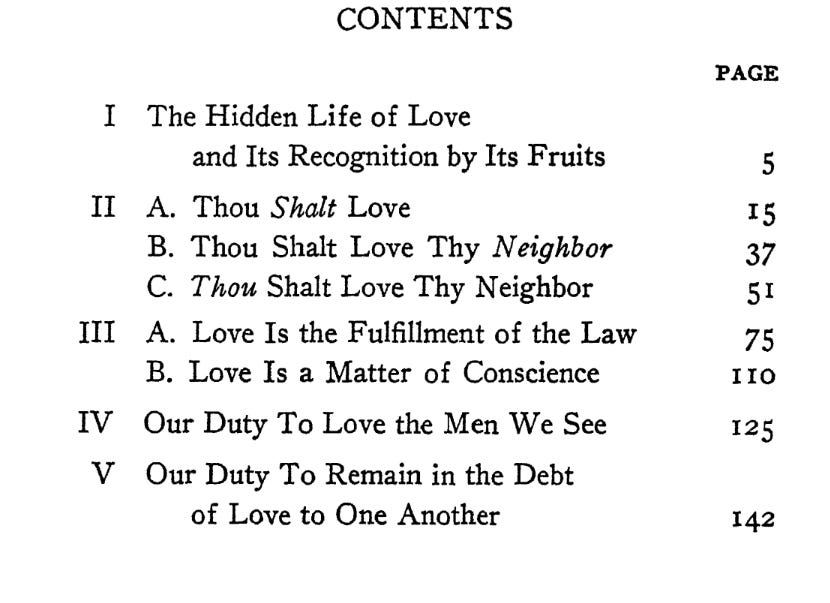Much like every four year old boy chooses Trains, Excavators, Dinosaurs, or spaceships to base their whole personality around, every person in ministry I know has some person of faith who has greatly influenced their ministry style. My wife for example is strongly influenced by Dorothy day. Luther and Calvin have their own denominations. Rob Reimer consistently references Fenelon. Jim Rudd has named his first born after A. W. Tozer.
1 Corinthians 1:12 ‘‘What I mean is this: One of you says, “I follow Paul"; another, “I follow Apollos"; another, “I follow Cephas"; still another, “I follow Christ.”’’ In pointing this out I am not trying to create a hierarchy, nor trying to say unlike these people I follow Christ first! Rather, that this is a phenomenon that has existed since the founding of the church.
Ever since that fateful day, when my classmate slid an obnoxiously colored book across the table, my view of faith and Christianity was unmistakably changed. If my wife and I had a son, and not daughters, he would have been named Soren. I am not alone in choosing this path, there are dozens of us! In fact even within our denomination (The Christian and Missionary Alliance) there are at least three pastors who are Kierkegaardians. In typical fashion we actually got to see them take two drastically different points of view in the egalitarian/complementarian debate, they wrote the papers for and against.
Early on in my ministry I received some crucial feedback from the aforementioned Jim Rudd. After a sermon given in Northeast Philly he pulled me aside and politely but firmly told me to know my community. ‘No one has ever heard of Kierkegaard and you don’t need to cite a paragraph of philosophy in the middle of your talk.’ I lightened up and stopped trying to pull in whole paragraphs of text, instead sticking to smaller snippets while only giving the name when someone asked ‘Where did that come from’.

When we moved to California we had a different demographic in the Chinese Church. Here there were people who literally worked for Nasa, tech companies, engineers… Now was the time! Again I launched into sharing my favorite thinker with the people around me. After about a year we had a performance review (I know rookie mistake asking people what they thought) and the feedback was clear—too philosophical! Politely hidden behind a screen of anonymity and with much dignity and face saving the results were clear.
I follow Kierkegaard because he takes the scriptures as seriously as his name implies. In Works in particular, he will take a verse, or a section of a verse, and then devote 20+ pages to looking at that verse logically from every angle.
Look at A, B, C in part II of this book. Each section has a focus on a single word and its impact on our understanding of the whole. The idea that love can be commanded that God in Jesus could declare a shall with love is absolutely countercultural. The title of the book reflects this, that it is Works of Love. By defining love as action and not as feeling or worse word the whole Christian experience is changed.
In part one, he elucidates this point to set the stage. As a tree is known by its fruits and not by its leaves so love is known by its action and not by its words. This does not mean that words are unnecessary—after all who has seen a tree covered in fruit but lacking in leaves—and yet we see trees covered in leaves every day completely lacking in fruit. (Jesus curses them). So, we who love God, are there actions hiding beneath our words that show that this is the case?
We can also turn this phrase around. For God so loved the world. With words? Yes, plenty of them. Perhaps more importantly with action. God did not merely pontificate from heaven (as is his right) but acts within history. In the person of Jesus, God comes close to be Emmanuel, God with us. We could have a God who remains distant and void of actions but we could not have a God who Loves. We would have to change the definition of Love for this to be the case. Trading a Love that is permanent and unchanging irrespective of the actions of the other for a love that is conditional and temporary.
This is why our church plant is pursuing the route of the Café. We believe it is our duty to love those we see, in word and deed. A café seemed to be the best way to go about that in our context, incarnating and acting on the Love we were commanded to express by the one who Loved us while we were still unlovely.
We shall love.
If you want to join us in this: Chez Mosaique






